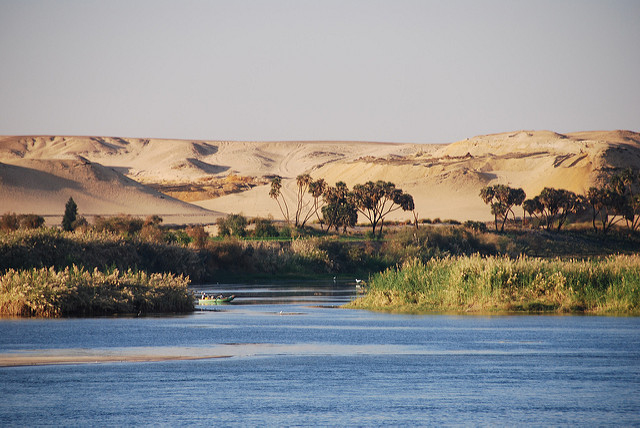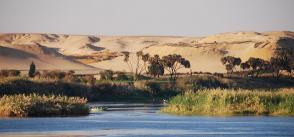
Climate change may be Egypt’s biggest threat
Though international media coverage on Egypt often focuses on President Abdel Fattah al-Sisi’s growing authoritarianism or security threats in the Sinai region, the country is facing another threat that often receives much less attention: climate change.
As greenhouse gas emissions have caused warmer sea temperatures and rising sea levels globally, seawater from the Mediterranean has been flooding Egypt’s low-lying delta region, for years. As a result, seawater has been steadily seeping into the Nile river, which is used for both drinking and crop irrigation. The consequent increase in the river’s salinization levels has not only made the water unsafe for drinking, but has also made swathes of previously fertile soil infertile, decimating agricultural production.
Because of its arid landscape, Egypt is dependent on the Nile River for nearly 86 percent of its water consumption. The Nile River Delta is also responsible for two-thirds of the country’s crops and was once known as the bread basket of the world. According to a 2015 article published in Newsweek, 60 percent of this vital region is predicted to be unusable by the end of the century, because of salt saturation, while another 20 percent is expected to be fully submerged in water. In a poor country already struggling to feed its population, this could have disastrous results.
Read the full article by Fatima Mohie-Eldin via Mufath.
[Photo by Michael Gwyther-Jones | Flickr]







